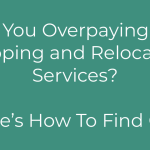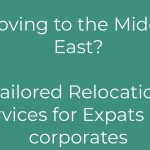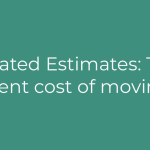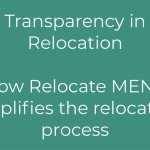Making the big leap to relocate to the Middle East comes with its unique blend of excitement and challenges, especially when it comes to managing your finances effectively. In this comprehensive guide, we’re diving deep into the essence of what constitutes a solid relocation package in the Middle East, how to negotiate for more without feeling awkward, and how to accurately present the cost of living differences to your employer.
What Constitutes a Solid Relocation Package in the Middle East?
Relocating isn’t just about changing your address; it’s about transitioning your entire life to a new cultural and geographic landscape. And this transition comes with its costs. A well-rounded relocation package for the Middle East typically covers:
- Visa and Work Permit Expenses
Essential for work-related moves, ensuring you’re legally permitted to work.
- Flight Arrangements
Covering the journey for you (and potentially your family) to your new home.
- Temporary Accommodation
Providing a place to stay until you find your feet and permanent housing.
- Shipping Costs
Assisting in moving your personal belongings to make your new place feel like home.
- Health Insurance
Ensuring you and your family’s health needs are covered in your new environment.
- Relocation Allowance
A lump sum to help with the various out-of-pocket expenses that crop up.
Is It Okay to Ask for More?
Absolutely! Asking for an enhancement in your relocation package isn’t just about getting more; it’s about acknowledging and preparing for the real costs of relocating. Here’s how to approach it:
- Do Your Homework
Understand the cost of living in the Middle East versus your current location. This gives you a baseline for negotiation.
- Professional Dialogue
Schedule a discussion with your employer. Present your findings and request respectfully, ready to negotiate.
Demonstrating the Cost of Living Differences
To effectively communicate the cost of living variations to your employer:
- Research Thoroughly
Utilise platforms like Numbeo’s Cost of Living Calculator to gauge housing, food, and transport costs in the Middle East.
- Use Comparative Analysis
Salary comparison tools can help illustrate salary disparities and living cost differences.
- Present Your Case
In your discussions, use this research to rationalise your request for a more robust relocation package.
How Does the Middle East's Cost of Living Stack Up?
The Middle East presents a mosaic of living costs, with cities like Dubai and Abu Dhabi ranking among the pricier globally. However, places like Muscat and Doha offer a more moderate cost of living. The key is to investigate the specific city you’re moving to, understanding the financial landscape you’re stepping into.
As you navigate the exciting journey of relocating to the Middle East, remember, knowledge is power. Armed with the right information and a clear understanding of what constitutes a fair relocation package, you can make informed decisions to ensure your transition is as smooth and financially manageable as possible. Whether you’re negotiating your package or simply seeking to understand the cost of living better, this guide is your first step towards a successful relocation adventure in the Middle East.
A thorough relocation package for moving to the Middle East should cover the cost of your visa and work permit, flights for you and your family, temporary accommodation until you find a permanent residence, shipping for your personal belongings, comprehensive health insurance for you and your dependents, and a relocation allowance to assist with miscellaneous moving expenses.
To negotiate a better relocation package, start by conducting thorough research on the cost of living in your destination compared to your current location. Schedule a meeting with your employer to discuss your findings and the need for a more substantial package. Present your case respectfully and be prepared to negotiate, emphasizing the importance of adequate support in your transition.
To show your employer the cost of living differences, gather data from reliable sources such as Numbeo, which provides cost of living estimates, or salary comparison sites like Payscale. This research should include the costs of housing, transportation, food, and other essentials in the Middle East compared to your current location. Present this information during your discussion to underline why you may need additional support in your relocation package.
Yes, it is common for employers to offer relocation packages to employees moving to the Middle East for work. These packages are designed to cover essential moving expenses, such as visa and work permit costs, flights, accommodation, and shipping of personal belongings, to facilitate a smooth transition for the employee and their family.
The cost of living in the Middle East varies significantly by city. Urban centres like Dubai and Abu Dhabi are known to be among the more expensive cities globally, reflecting high costs for housing, transportation, and general living expenses. In contrast, cities like Muscat and Doha offer a relatively lower cost of living. It's crucial to research the specific city you are relocating to for a precise understanding of your financial needs.









